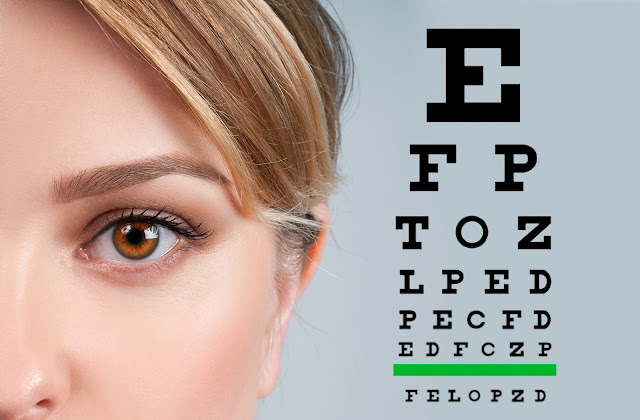What Should I Do to Keep My Eyes Healthy?
Tips to Maintain Your Eye's Health
Be aware of changes in your vision due to your hormones
Women undergoing hormonal adjustments are bound to be affected by dry eye infections, including women who are pregnant, going through menopause, or who are taking hormonal anti-conception medications.
The increase in the right hormones can also lead to vision changes. If you notice any such changes, be sure to communicate them with your eye care professional.
Eat a Balanced Diet
As a healthy diet phase, choose foods that are rich in antioxidants, such as vitamins A and C; green leafy material, fish, and vegetables.
Many fatty fish foods, such as salmon, contain essential omega-3 fatty acids, which are necessary for macular health (the phase of the eye responsible for central vision).
Insufficient consumption of antioxidants, consumption of alcohol, or saturated fat can also cause free radical reactions that can damage the macula, the center part of the retina.
A high-fat diet can also cause deposits that constrict blood vessels, following the flow in arteries. The eyes are especially sensitive to this, due to the tiny dimensions of the blood vessels that feed them.
Carrots for eye health
Carrot is rich in vitamin A and beta-carotene. Vitamin A has an important role in your vision health. Vitamin A is an element of the protein known as Rhodesia, which helps the retina absorb light.
Research into the function of beta-carotene in vision is mixed, although the body needs this nutrient to make vitamin A.
Your eyes need a rest
Once every 30 minutes, take your eyes off your computer screen and close your eyes for 30 seconds. Then open your eyes and blink quickly, this will coat your eyes with a layer of moisture.
Constantly working in front of a computer screen, and not resting your eyes for a long time can cause computer vision syndrome. This causes eyestrain, blurred vision, and discomfort.
Wear Safety Goggles
If you use hazardous, or airborne, substances at work or home, wear safety glasses or goggles.
Sports like ice racquetball, hockey, and lacrosse can also cause eye injuries. Wear eye protection. A helmet with a face shield or sports glasses with polycarbonate lenses will protect your eyes.
Sun Glasses
The sun's ultraviolet (UV) light can harm your eyes, burn your cornea, or cause eyelid cancer. Protect your eyes with sunglasses, or contacts that block 99 to 100% of UV-A and UV-B rays.
Proper lighting
Make sure you have the right lighting. Position your lamp properly when checking or working at a computer. Low light or bright light can cause eyestrain.
No Smoking
It makes you more likely to develop cataracts, optic nerve damage, and macular degeneration, among many medical issues. If you are tired of quitting your previous addiction, only to start again, keep at it. The stronger your desire to try to quit, the better your chances of success.
Get to know your eye care provider
When you go to have your eyes tested, there are a variety of eye care providers you may encounter. Optometrists and opticians all play an important function in providing consumers with eye care offerings. However, each has different stages of teaching and expertise. Make sure you see the right provider for your situation or treatment. Optometrists are specialized in providing the full spectrum of eye care, from prescription eyeglasses and contact lenses to complex and delicate eye surgeries.
A healthy body means healthy eyes
Control your blood sugar, blood pressure, and LDL cholesterol levels. Keeping your blood glucose and LDL cholesterol levels low will help maintain healthy eyes and relax your body.
Wash your hands
Keeping your hands clean is very important for your eyes. Before you touch your eyes, and before you put on or take off contact lenses, wash your hands with a mild soap, and dry them with a lint-free towel.
Some germs and microorganisms from your hands can cause eye infections, such as bacterial conjunctivitis.
Visit your eye doctor
You should go to the ophthalmologist every two years and have an eye exam. An ophthalmologist will examine your eyes to look for specific disorders, diseases, and complications. If your ophthalmologist sees a problem, you will work together to treat the condition.
You should also go to your primary health doctor many times to check your blood pressure and diabetes.
If left untreated, this can lead to eye disorders such as macular degeneration, eye stroke, and diabetic retinopathy.
Blue Light and Device
You certainly use the device for hours every day at work and at home. This device exposes your eyes to a blue light that is too strong. It is called blue light because the wavelength it emits is close to the bluer part of the spectrum. Lutein & Zeaxanthin are eye nutrients targeted at the macula and help filter blue light. Lutein and Zeaxanthin cannot be produced by the human body, so they have to be obtained through food or supplements.
Hints to Help Lighten Your Eyes When You're Using a Computer:
- Keep the top of your laptop display screen slightly below your eye level.
- Rest your eyes every 20 minutes, focusing on objects 20 feet away, for 20 seconds.
- Keep your laptop screen display within 20"-24" from your eyes.
- Blinks frequently.
- Adjust the lights to limit glare on the screen.
Get a healthy night's sleep
You'll feel the difference when you get the sleep you need. You'll feel healthy, whether you're working from home, or the office, and proper relaxation can help your eye health.
Know your other risk factors.
As you age, you are at a greater risk, of getting age-related eye diseases and conditions. You can also reduce your risk of eye damage, by making some lifestyle changes.
Summary
